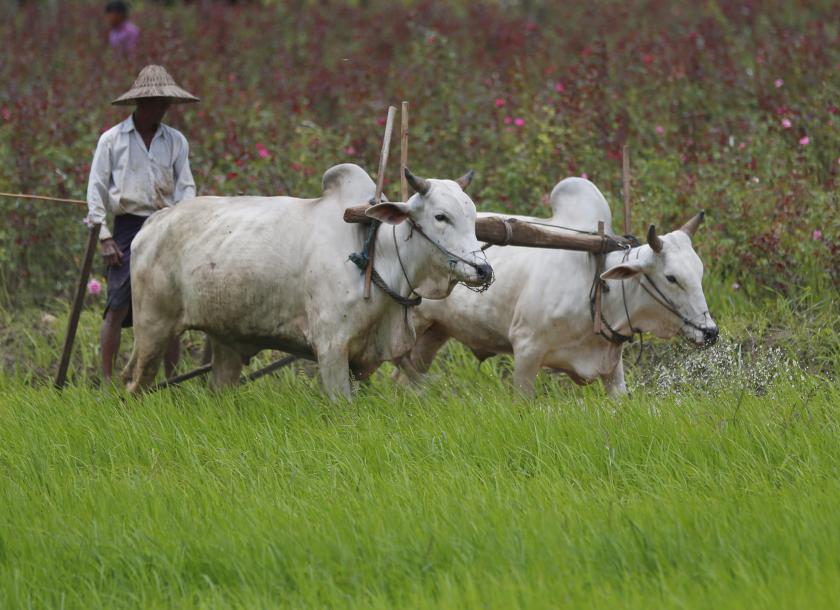Myanmar Livestock sector decline may pose longer term food security issues as the result of COVID – 19
21 พฤษภาคม 2563
The Myanmar livestock sector is among the sectors impacted as a result of COVID-19, according to results of a Myanmar Livestock Federation survey released May 18.
The survey involved more than 300 livestock businesses across Myanmar.
Based on the feedback, the three main challenges faced by the sector are declining livestock prices, a surplus of cattle and transportation limits.
These challenges are interconnected. Prices have declined due to a lack of market demand as a result of COVID-19, causing a surplus of animals. Meanwhile, disruptions to transport have slowed trade, leading to declines in price.
97 percent of survey respondents said their businesses are either facing profit declines or have sunk into losses.
If the situation continues, only 20pc of the survey respondents said they will continue to operate in the long term. Most said they would be out of business within two years. About half the respondents have reduced manpower as a result of the current situation.
Notably, survey results implied that the country could face potential longer term food security issues if the impact on livestock breeding cannot be quickly addressed.
Financing support is crucial for most of the industry. “Small-scale livestock business are the most affected. These businesses need financing and cash flow to operate but this is running dry,’’ U Kyaw Htin, vice chair of the Myanmar Livestock Federation, said.
Most of the survey respondents said they are keen to apply for loans, but there are fewer opportunities to access finance.
The Myanmar Livestock Federation has urged the government to further ease transportation limits and enable prices to stabilise as well as provide financing support to support livestock businesses.
Last month, demand for livestock from restaurants and hotels fell for the third consecutive months, as most remained shut to prevent the spread of COVID-19. The authorities have also gradually reduced interstate transportation restrictions, allowing more businesses to operate.
"The livestock industry is important as it contributes to the peoples' food requirements. So, we shouldn't neglect providing support to this sector," U Kyaw Htin said.
The Myanmar livestock industry mainly comprises cattle, goats, pigs and chickens. According to official data, the country had registered 11 million head of cattle, 2 million goats, 5.8 million pigs, 70 million chickens and around 9 million other animals, including ducks, in 2019.
The challenges faced by livestock businesses are similar to those faced by farmers. As government loans have paused and microfinancing institutions have suspended operations, many farmers have been unable to raise money for the seeds, fertilisers, pesticides and machinery needed for the year's growing season.
Experts have warned that there could be a severe food shortage in six months if farmers are unable to start planting before the monsoon arrives.
Agriculture accounts for a quarter of Myanmar’s GDP and employs 12 million people, or around 50pc of the labour force. It has also contributed to around 20pc of export value at US$3 billion annually. Rice is the most common crop in the country, followed by pulses and maize.
The Ministry of Agriculture, Livestock and Irrigation (MoALI) announced on May 13 that jobs and financing for farmers will be made available under its the COVID-19 Economic Relief Plan (CERP).
MoALI will harness a total of 400,000 acres of farmland on which it will work under a a joint venture with the Myanmar Rice Federation to produce seeds for planting. This will take up half the land. The remaining half will be used for the growing and harvesting of crops. Funds are expected to come from the government budget as well as international financing.
This also aligns with the CERP, under which the government has pledge to support farmers with small-scale faring and seed production.
So far though, the government has yet to announce measures targeting support for the livestock and fishery sectors.
(The Myanmar Times: https://www.mmtimes.com/news/livestock-decline-may-pose-longer-term-food-security-issues-survey.html )











